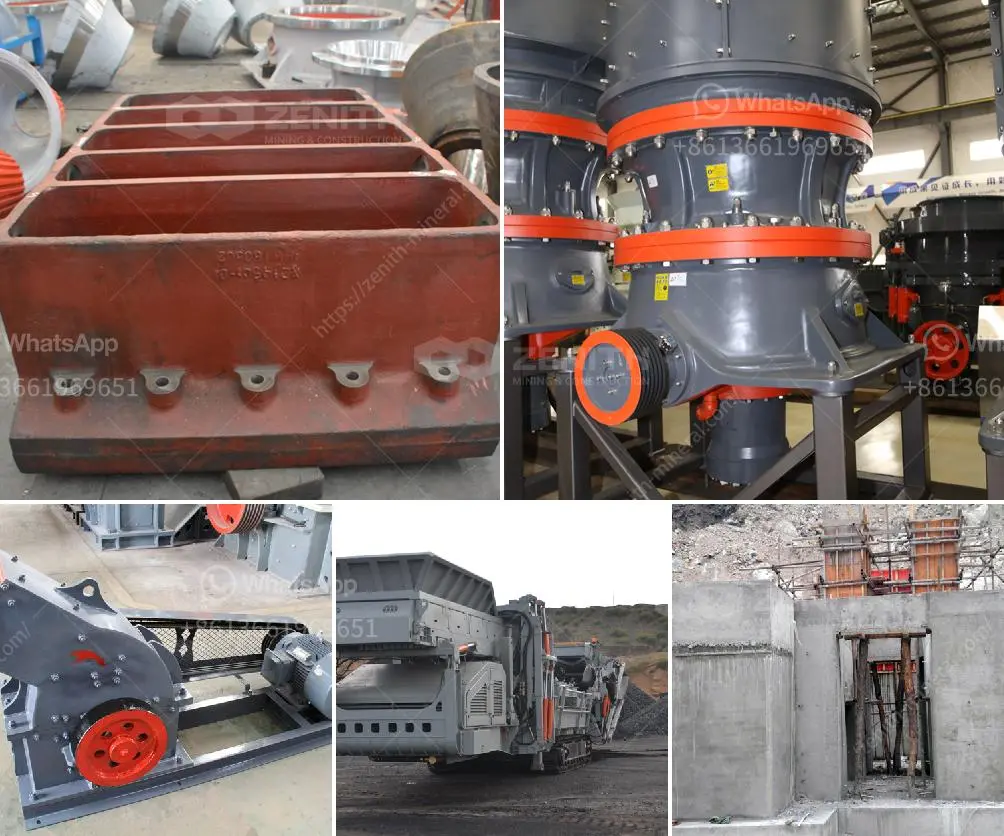When selecting crushers for limestone crushing, it's important to consider the specific requirements of your project, such as the intended product size, production capacity, and the characteristics of the limestone. Here are some of the crushers commonly used for limestone crushing:
Jaw Crushers: These are typically used for primary crushing and are ideal for breaking down large pieces of limestone into smaller pieces. They provide a high reduction ratio and produce a relatively uniform particle size.
Impact Crushers: These are often used for secondary crushing and are well-suited for producing well-shaped, cubical aggregates. They work by using impact force rather than compression, which is particularly effective for limestone, as it has a less dense structure.
Hammer Crushers: These crushers are effective for medium to fine crushing and are often used to achieve very small or fine granules. They involve a high-speed rotor with a high degree of impact force, making them suitable for softer stones like limestone.
Cone Crushers: These are usually used for secondary or tertiary crushing and are ideal for materials that require a reduction in particle size with precision. They provide excellent control over the final product size and can handle more abrasive material.
Roll Crushers: These also provide excellent control over product size and are suitable for producing minimal fines. They work well with medium-hard materials like limestone.
The choice of crusher depends on several factors including the hardness and abrasiveness of the limestone, the size of material coming in, desired size of the output, capacity requirements, and the final application of the crushed limestone. Always consider consulting with a professional or an engineer to ensure you select the most efficient and cost-effective crusher for your specific needs.

